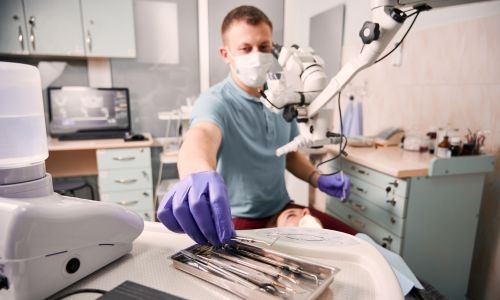A 51-year-old Asian dental technician in Bahrain has been sentenced to two years in prison and will be deported after being found guilty of using forged credentials to obtain his license. The defendant had been working in Bahrain since 2007 and had submitted forged academic certificates in 2006 to the National Health Regulatory Authority (NHRA). He had conspired with a friend in his home country to obtain a fake university diploma, claiming to have a degree in dental technology. This deception allowed him to secure his license as a dental technician, which he renewed annually until 2022 when the forgery was discovered following an anonymous tip.
The NHRA received an email in April-May 2022 from a person with the same nationality as the defendant alleging that his dental technician certificate was fraudulent. Upon verification with a specialized company, it was confirmed that the documents were indeed fraudulent. Further investigations revealed that the defendant had submitted forged certificates in 2006 to obtain his license to practice dentistry in 2007. The license was renewed annually until May 13, 2022 when the forgery was uncovered.
During the Public Prosecution’s investigation, the defendant confessed to the charges. He admitted that a university degree was required to obtain a dental technician license, and in 2004-2005, he conspired with his friend to obtain a fake university certificate. He provided false information on a form claiming to have a diploma in dental technology from a university. This confession led to his sentencing to two years in prison and deportation for his fraudulent actions.
This case highlights the importance of verifying credentials and qualifications in professional settings, especially in sensitive fields like healthcare. The NHRA’s diligence in investigating the anonymous tip and confirming the authenticity of the documents ultimately led to the discovery of the forgery and the subsequent legal action against the defendant. By ensuring that professionals have the required qualifications and credentials, regulatory authorities can uphold standards and protect public safety in various industries.
The consequences of using forged credentials can have serious repercussions, as demonstrated by the defendant’s case. Not only was he sentenced to two years in prison, but he will also be deported from Bahrain. This serves as a warning to others who may be tempted to falsify their qualifications to obtain professional licenses. It is essential for individuals to earn their qualifications legitimately and adhere to the ethical standards of their profession to avoid facing legal and professional consequences like those experienced by the defendant.
In conclusion, the case of the 51-year-old Asian dental technician in Bahrain serves as a cautionary tale about the risks and consequences of using forged credentials to obtain professional licenses. The importance of verifying qualifications and credentials in professional settings cannot be overstated, as demonstrated by the diligent investigation conducted by the NHRA in this case. By upholding standards and ensuring that professionals have the necessary qualifications, regulatory authorities can maintain public safety and integrity in various industries. It is vital for individuals to earn their qualifications legitimately and adhere to ethical standards to avoid facing legal and professional repercussions like those faced by the defendant in this case.











